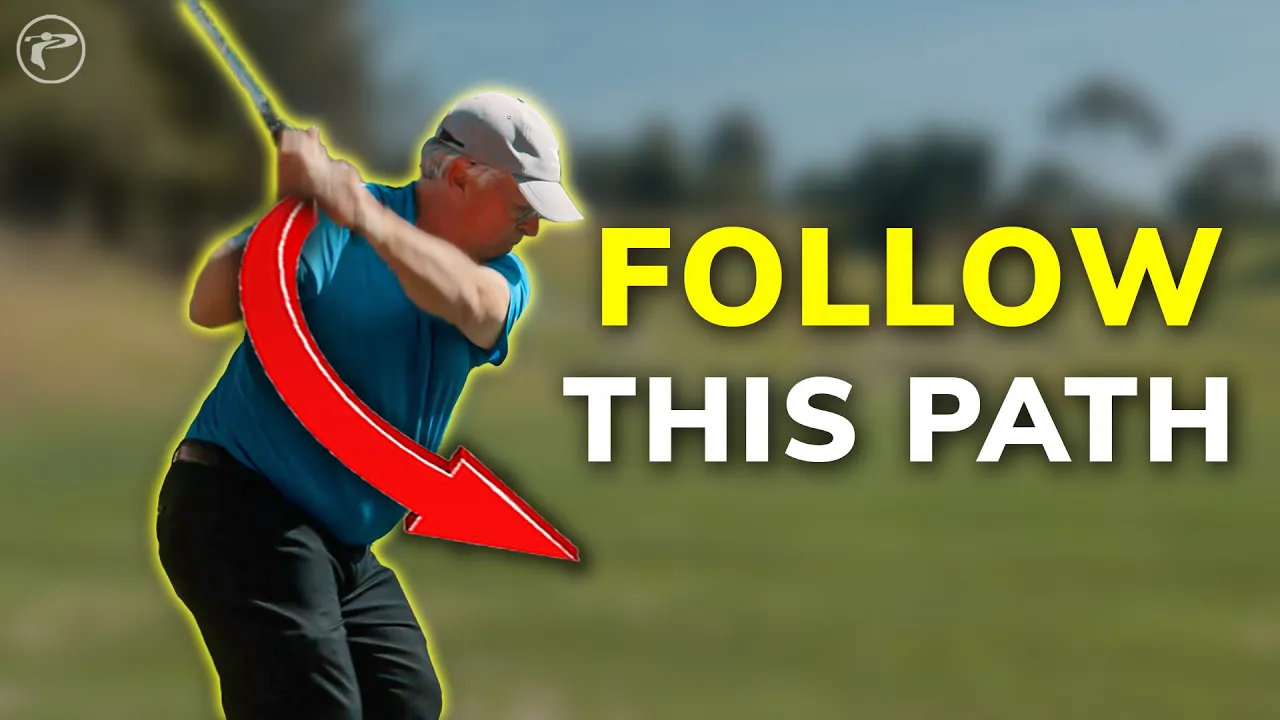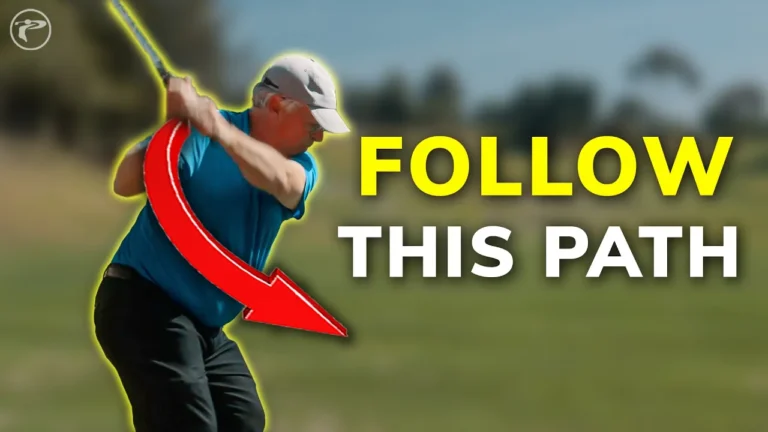
Striving to refine your golf swing? Begin by mastering your hand path for consistent precision and control. This guide provides strategic insights and actionable tips to enhance your swing mechanics, ultimately elevating your golfing game.
Table of Contents
- Understanding the Hand Path
- The Visual of a Metal Washer
- The Importance of Stretching Your Muscles
- Adjusting Your Hand Path
- Analyzing Great Golfers: Adam Scott
- Key Checkpoints for Perfect Hand Path
- Why Hands Should Follow Body Turn
- Creating a Direct Path to the Golf Ball
- The Role of Your Lead Shoulder
- Drills to Improve Your Swing Mechanics
- The Importance of the Right Setup
- Maximizing Distance Through Rotation
- Evaluating Shot Outcomes
- Drills for Impact and Ball Flight
- Visualizing a Consistent Swing
- Engaging Your Body for Better Performance
- Join the Full Swing Master Class
Understanding the Hand Path
The hand path is critical for a consistent golf swing. It dictates the trajectory of your hands during the swing, ensuring better club alignment and positioning at impact. Mastering it boosts both accuracy and driving power.
The Role of the Hands in Your Swing
Your hands link your body to the club. Align them with your body’s turn to maintain the square clubface needed for precision. This fluid motion enhances swing power and accuracy.
The Visual of a Metal Washer
Picture a metal washer atop your swing. The club should never dip below it. This mental image stabilizes your hand path, ensuring that your swing is more direct and less prone to errors.
The Importance of Stretching Your Muscles
Flexibility is key before swinging. Properly stretched muscles enable fuller turns, guiding your hands along the right path for enhanced range and power. Focus on the forearms, shoulders, and back.
Adjusting Your Hand Path
A slight hand path adjustment can transform your swing. Keep your hands aligned with your body to maintain the ideal angle and contact, resulting in improved ball strikes.
Checkpoints for a Proper Hand Path
- Begin the takeaway with hands moving straight back.
- Visualize the lead arm aligning with the shoulder plane at the backswing’s peak.
- Let hands trail the body’s natural turn during the downswing.
Analyzing Great Golfers: Adam Scott
Adam Scott exemplifies perfect hand path mechanics. Observe the stability and direction in his swing—a model of precision and consistency worth emulating.
Key Checkpoints for Perfect Hand Path
Focus on key checkpoints to refine your hand path:
- Start with correct hand positioning.
- Maintain straight hands during the takeaway aligned with your spine.
- Ensure the lead arm is parallel at swing peak.
- Use the lead shoulder to initiate the downswing naturally.
Why Hands Should Follow Body Turn
Letting hands and body move as one eliminates inconsistencies. This synchronization is crucial for effective timing and rhythm, paving the way for perfect ball strikes.
Creating a Direct Path to the Golf Ball
Your goal is to forge a direct hand-to-ball path. Avoid letting hands drift; stay on plane for consistent performance and minimal spin mistakes.
The Role of Your Lead Shoulder
Your lead shoulder initiates the swing. Guide it properly to allow your hands to follow effortlessly, setting up a powerful, natural swing.
Drills to Improve Your Swing Mechanics
Incorporate impactful drills to refine your mechanics and reinforce a planar, consistent swing.
1. The Left Hand Drill
Place your left hand beneath the left arm to hone your swing initiation. Feel the shoulder lead and engage to build swing tension.
2. The Shoulder Turn Drill
Practice wider turns with the lead shoulder for natural hand pathways and more powerful swings.
3. The Pocket High Drill
Visualize achieving ‘pocket high’ hands to keep an effective hand path and ease the downswing transition.
The Importance of the Right Setup
Proper setup is critical, influencing swing mechanics and performance. Align your stance, grip, and body position to maximize your potential.
1. Align Your Body Correctly
Parallel alignment of feet, hips, and shoulders with the target reduces chances of swing deviations like slicing.
2. Establish the Right Grip
Employ a neutral, tension-free grip to facilitate motion range and control.
Maximizing Distance Through Rotation
Enhanced body rotation translates to greater shot distance. Focus on core engagement and hip rotation for energy storage and speed.
1. Engage Your Core
Engaged core muscles provide stability and balance, boosting rotation efficiency.
2. Focus on Hip Rotation
Allow full hip rotation to store energy and increase clubhead speed transfer during the downswing.
Evaluating Shot Outcomes
Understanding results aids improvement. Analyze ball flight and impact positioning for insights into necessary swing adjustments.
1. Track Your Ball Flight
Consistent trajectories reveal aspect areas needing refinement, tracking ensures performance boosts.
2. Assess Your Impact Position
Check consistency and center impact, adjusting swing for better accuracy and distance if needed.
Drills for Impact and Ball Flight
Target impact and ball flight with drills to improve outcomes.
1. The Impact Bag Drill
Reinforce solid impact positions by practicing with an impact bag.
2. The Ball Flight Drill
Work toward target consistency and shot accuracy with distance-based drills.
Visualizing a Consistent Swing
Visualization trains your mind for consistency and reliability on the course. Integrate mental practice into your routine.
1. Create a Mental Image
Visualize your swing beforehand to solidify the mechanics mentally.
2. Use Slow Motion Rehearsals
Practice in slow motion to focus on hand path and body synchronization.
Engaging Your Body for Better Performance
Ensure holistic bodily involvement for performance improvements.
1. Maintain Proper Posture
Good posture allows optimal body movement for effective swinging.
2. Coordinate Your Movements
Synchronized body elements enhance timing and rhythm, driving swing success.
Join the Full Swing Master Class
Ready to elevate your golf skills? Enroll in our Full Swing Master Class, a comprehensive program designed to enhance your swing with strategic guidance and community support.
1. Step-by-Step Guidance
Learn complex mechanics incrementally, ensuring detailed mastery of each element.
2. Community Support
Engage with other golfers, share progress, and receive feedback, fostering collective learning and improvement.
Invest in your golfing journey, unlock your potential, and transform your game significantly. Let’s get started!


0 Comments